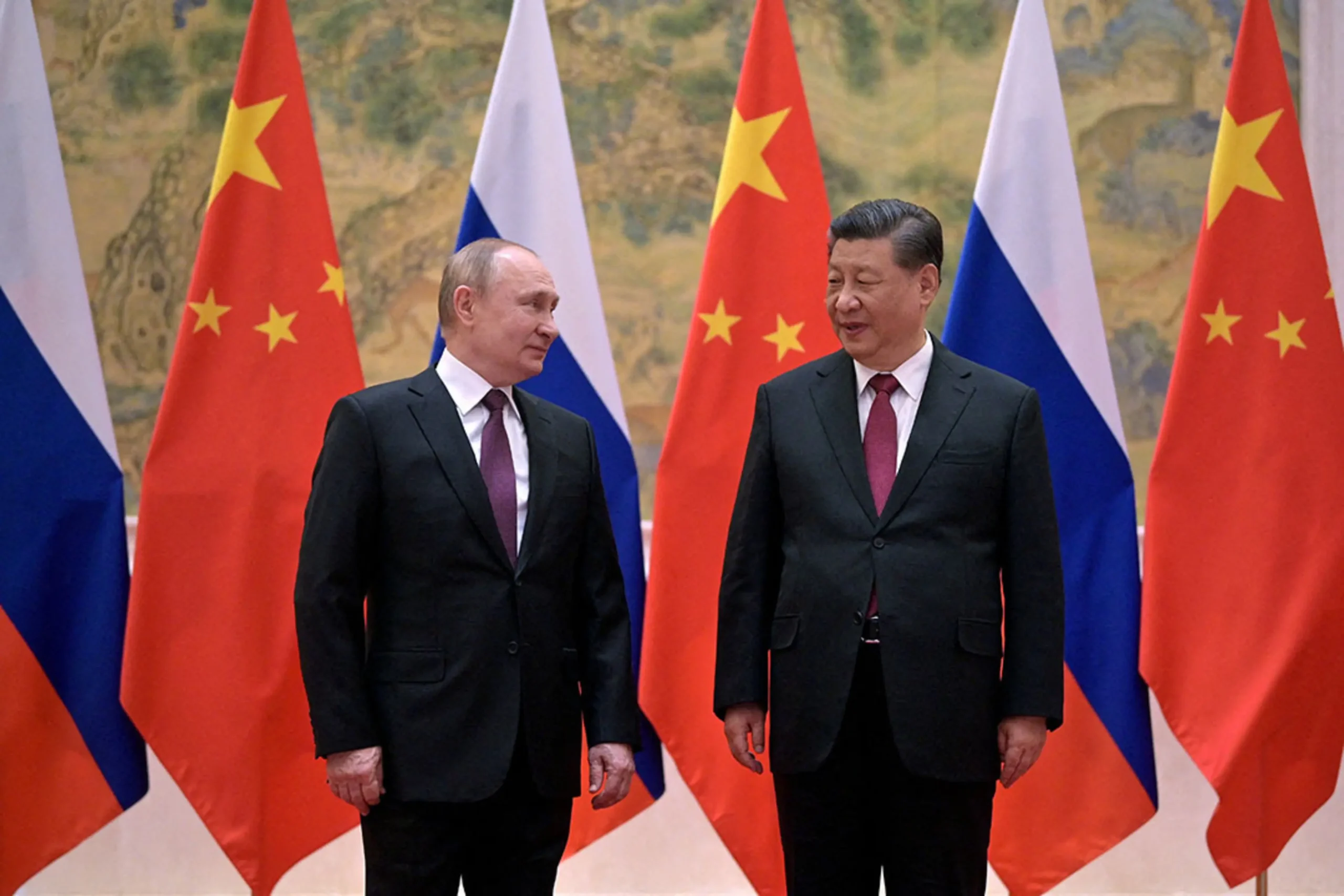In a powerful display of international diplomacy, Russian President Vladimir Putin and China’s second-highest official, Premier Li Qiang, reaffirmed their commitment to strengthening the strategic partnership between their two nations. This meeting, which took place as the war in Ukraine continues to unfold, highlights the deepening ties between Russia and China—a relationship that has taken on new significance amid growing global tensions and the shifting dynamics of international alliances.
The Context: A War That Reshapes Global Alliances
The war in Ukraine, now stretching into its second year, has had profound consequences not only for the countries directly involved but also for the broader geopolitical landscape. As Western nations, led by the United States and the European Union, have imposed sweeping sanctions on Russia and provided military support to Ukraine, Russia has sought to bolster its ties with non-Western powers. China, with its economic might and global influence, has emerged as a crucial partner in Moscow’s strategy to counterbalance Western pressure.
The deepening partnership between Russia and China has raised concerns in Western capitals, where officials fear that this alliance could challenge the existing international order. The relationship between the two countries, which had been gradually warming over the past two decades, has now evolved into a more comprehensive strategic partnership, encompassing economic cooperation, military collaboration, and coordinated positions on global issues.
The Meeting: A Show of Unity and Strategic Intent
During their meeting, President Putin and Premier Li Qiang emphasized the mutual benefits of the Russia-China relationship, with both leaders praising the ongoing collaboration between their countries. Putin highlighted the importance of China as a key economic partner for Russia, particularly in light of the sanctions imposed by Western countries. He noted that trade between Russia and China has reached new heights, with bilateral trade volumes expected to surpass previous records by the end of the year.
Premier Li Qiang, in turn, reiterated China’s commitment to working closely with Russia on a range of issues, including energy cooperation, infrastructure development, and technological innovation. He emphasized that the partnership between China and Russia is based on mutual respect and shared interests, and that both countries are committed to supporting each other’s core interests on the global stage.
The meeting also served as an opportunity for both leaders to showcase their alignment on key international issues. They expressed their shared opposition to what they described as Western attempts to impose a unipolar world order, and reiterated their commitment to promoting a multipolar world in which the sovereignty and independence of all nations are respected. This rhetoric has been a consistent theme in the public statements of both Russia and China in recent years, as they seek to position themselves as defenders of a more equitable and just global order.
Economic Cooperation: A Pillar of the Russia-China Partnership
One of the key areas of focus in the Russia-China relationship is economic cooperation. As Western sanctions have cut off many of Russia’s traditional trade and financial channels, China has stepped in as a vital economic lifeline for Moscow. The two countries have expanded their trade in energy, with Russia increasing its exports of oil and natural gas to China, and Chinese companies investing in Russian energy projects.
In addition to energy, Russia and China have also strengthened their cooperation in areas such as agriculture, technology, and infrastructure. Chinese companies have played a significant role in the development of Russia’s transportation and logistics networks, helping to facilitate the flow of goods between the two countries. The Belt and Road Initiative, China’s ambitious infrastructure project, has also provided a framework for deeper economic integration between Russia and China, with new transport corridors being developed to connect the two nations more closely.
Furthermore, the two countries have sought to reduce their reliance on the US dollar in bilateral trade, a move that reflects their desire to insulate themselves from the impact of Western sanctions and financial pressure. The use of local currencies in trade settlements between Russia and China has increased, and both countries have explored alternative payment systems that bypass Western-controlled financial networks.
Military and Security Cooperation: A Strategic Alliance
Beyond economic ties, the Russia-China partnership has also expanded in the realm of military and security cooperation. The two countries have conducted joint military exercises in various regions, including the Asia-Pacific and the Arctic, demonstrating their ability to coordinate their military forces and project power beyond their borders.
These joint exercises have served multiple purposes: they have enhanced the interoperability of Russian and Chinese forces, sent a message of deterrence to potential adversaries, and strengthened the strategic trust between Moscow and Beijing. The growing military ties between Russia and China are seen as a response to the increasing military presence of the United States and its allies in regions that both Russia and China consider to be of strategic importance.
In addition to joint exercises, Russia and China have also deepened their collaboration in areas such as intelligence sharing, cybersecurity, and the development of new military technologies. This cooperation has raised concerns in Western capitals, where officials fear that the Russia-China military partnership could alter the balance of power in key regions, including Eastern Europe, the Asia-Pacific, and the Arctic.
Global Implications: A New Axis of Power?
The deepening ties between Russia and China, particularly against the backdrop of the Ukraine war, have significant implications for global geopolitics. The partnership between these two major powers is increasingly being viewed as a challenge to the Western-led international order, with Russia and China seeking to create a counterbalance to US influence in global affairs.
The Russia-China partnership is not without its complexities. While the two countries share common interests in countering Western influence and promoting a multipolar world, there are also areas where their interests diverge. For example, China’s economic and strategic interests in Central Asia sometimes overlap with Russia’s traditional sphere of influence in the region, leading to subtle competition between the two countries.
Nevertheless, the current trajectory of the Russia-China relationship suggests that both countries are willing to set aside their differences in favor of a broader strategic alignment. As the Ukraine war grinds on, and as the rivalry between the US and China intensifies, the partnership between Russia and China is likely to play a central role in shaping the future of global geopolitics.
For the West, this partnership presents a significant challenge, requiring a rethinking of strategies to engage with both Russia and China. The deepening ties between these two nations underscore the need for a nuanced approach that balances deterrence with diplomacy, and that recognizes the shifting dynamics of power in the 21st century.











